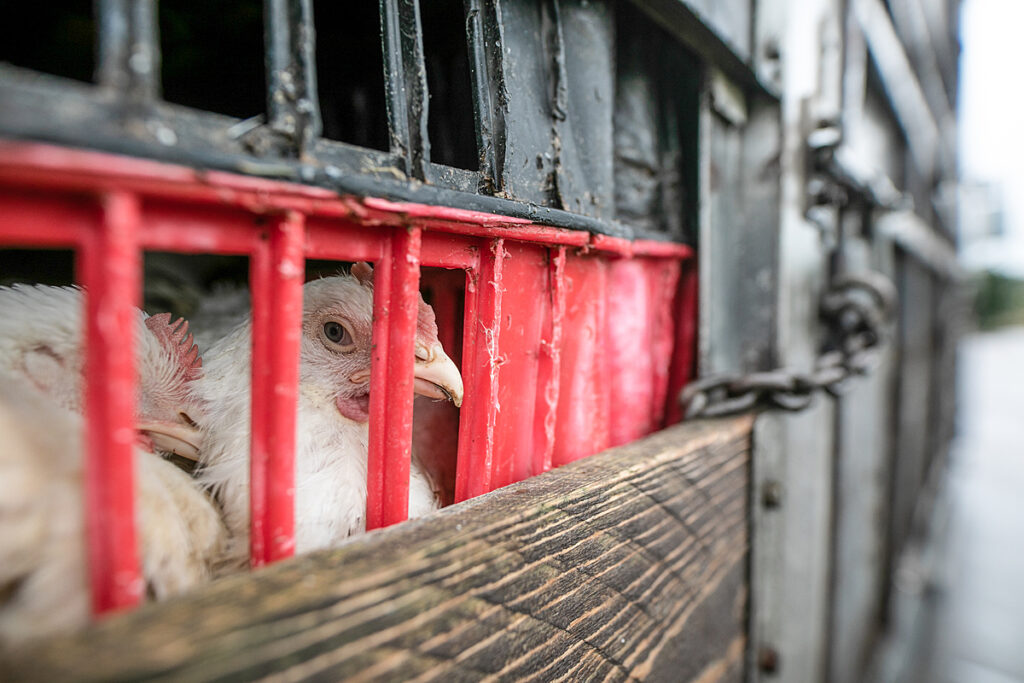The council meeting on Monday demonstrated the division in the EU regarding the issue of live animal transport in the context of the upcoming reform of animal welfare legislation.
The Agriculture and Fisheries Council (AGRIFISH) meeting in Brussels was chaired by the Swedish minister for Rural Affairs, Peter Kullgren, and dealt with the market situation for agriculture, the bioeconomy and the Industrial Emissions Directive. The agriculture ministers received information from the European Commission and Member States on the current situation in agricultural markets.
A seemingly minor agenda point was animal transport where ministers discussed the revision of the animal transport legislation, which is considered an essential part of food production.
As previously reported, eight EU countries that export most live animals to non-EU countries issued an information note to the European Council ahead of the meeting and argued that the export should continue to be allowed in the revision of EU animal welfare legislation.
The note drafted by Portugal on behalf of the French, Greek, Irish, Latvian, Lithuanian, Portuguese, Romanian and Spanish delegations in the Agriculture and Fisheries Committee and was raised at the Council meeting on 30 January. The eight countries represent ca 37 % of the EU population and can block a Council decision on a ban on export of live animals.
The discussion in the Council did not result in any decision. Ministers were informed about the revision of the animal transport legislation and the need for higher animal welfare transport in the single market and for exports to third countries.
However, several member states called for an ambitious revision: The Netherlands was reportedly the loudest, clearly opposing the paper and asking for a straightforward ban on live export. Other countries opposed the paper too.
Germany highlighted the scientific evidence given by the European Food Safety Authority (EFSA) on the animal welfare risks resulting in long duration of transports and extreme temperatures and the consideration of societal demands when deciding on this issue. It concluded that long exports to third countries are not acceptable.
Netherlands and Denmark remarked that too many cases of suffering in the past have shown that transport of livestock to third countries should be avoided, and animal friendly alternatives should be implemented and adjusted to specific animal needs. Other countries highlighted the transport of meat and genetic material as an alternative to live exports for slaughter.
“If science and experience tell us that certain practices in transport are detrimental to the welfare of animals, which could also pose a threat to animal health and consequently to human health, I believe and you would agree with me we must find ways to adjust those practices. Doing nothing is not an option”, said Stella Kyriakides, European Commissioner for Health and Food Safety.
Animal transport is a key part of the revision process and a high priority for the Commission. The Commissioner added that proposals will be based on updated scientific opinion and evidence. Whilst farmers would be supported to transition to new systems, the welfare of the animals must be ensured.
“Several member states are backing citizens in their demands for the animals: cruel transport practices need to stop, specifically live export, as we have witnessed far too many tragedies at sea and on the road,“ commented Reineke Hameleers, CEO, Eurogroup for Animals.
She added that, “It was good to hear opposing member states mentioning a trade in meat and carcasses, as this is the only way forward. And it was important to hear that the Commissioner was firm in her defence of the revision.
“Commissioner Kyriakides spoke up for the vast majority of Europeans today when she reminded member states that it is the welfare of animals that is the objective of these proposals, not the continuation of a broken economic model,” commented Joe Moran, Director of European Policy Office at FOUR PAWS.
“Whilst change can be hard, and farmers must be supported, democracy rests on the will of the majority and citizens are crying out for change beyond the Brussels bubble. Commissioner Kyriakides is clearly listening. It is a shame that several ministers seem either oblivious or uninterested.”
M. Apelblat
The Brussels Times

